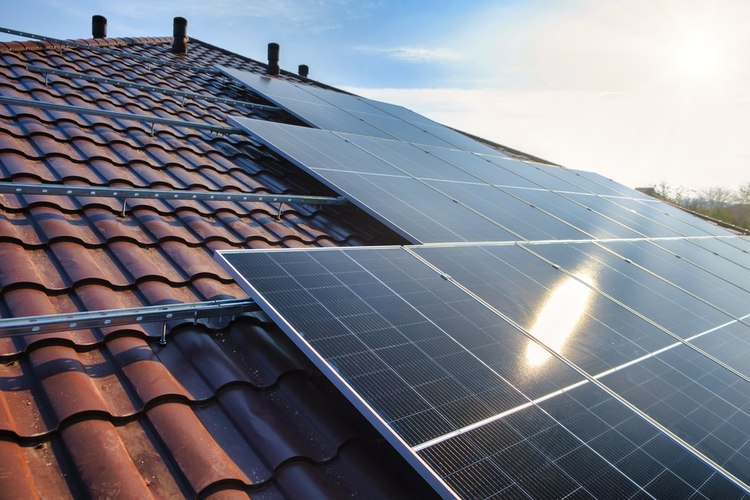Solar Water Heaters: Harnessing the Sun's Power for Pool and Home Heating
Solar water heaters have become increasingly popular as an eco-friendly and cost-effective solution for heating water in homes and swimming pools. These innovative systems harness the sun's energy to provide hot water for various applications, reducing reliance on traditional energy sources and lowering utility bills. In this article, we'll explore how solar water heaters work, their benefits, and their applications for both residential and pool use.

What are the benefits of using solar water heaters for homes?
Installing a solar water heater on your house can offer numerous advantages. Firstly, it significantly reduces energy consumption, as the sun’s energy is free and abundant. This translates to lower electricity or gas bills, depending on your current water heating method. Additionally, solar water heaters have a long lifespan and require minimal maintenance, making them a cost-effective investment in the long run. They also contribute to reducing your carbon footprint, as they produce no greenhouse gas emissions during operation.
How can solar water heaters be used for swimming pools?
Solar water heaters are an excellent solution for heating swimming pools, especially in regions with ample sunlight. The system works similarly to residential solar water heaters but is typically larger to accommodate the greater volume of water in a pool. Solar panels are installed on the roof or in a nearby sunny area, and pool water is circulated through them to be heated. This method can extend the swimming season by maintaining comfortable water temperatures without the high energy costs associated with traditional pool heaters.
What factors should be considered when installing solar panels for water heating?
When considering the installation of solar panels for water heating, several factors come into play. The orientation and angle of your roof are crucial, as they determine the amount of sunlight the panels can capture. South-facing roofs in the Northern Hemisphere are ideal, but east and west-facing roofs can also be suitable. The size of your household or pool will influence the number of panels needed. Additionally, local climate conditions, such as average sunlight hours and temperature variations, should be taken into account to ensure optimal performance of the solar water heating system.
Are there any limitations to using solar water heaters?
While solar water heaters offer many benefits, they do have some limitations. Their effectiveness can be reduced during cloudy or rainy periods, potentially requiring a backup heating system for consistent hot water supply. The initial installation cost can be higher compared to traditional water heaters, although this is often offset by long-term energy savings. In areas with limited sunlight or extreme weather conditions, the efficiency of solar water heaters may be compromised. It’s essential to consult with a professional to determine if a solar water heating system is suitable for your specific location and needs.
What are the cost implications of installing a solar water heater?
When considering the installation of a solar water heater, it’s important to understand the associated costs and potential savings. While the initial investment may be higher than traditional water heating systems, the long-term benefits often outweigh the upfront expenses.
| System Type | Average Installation Cost | Annual Energy Savings | Payback Period |
|---|---|---|---|
| Residential Solar Water Heater | $3,000 - $8,000 | $200 - $600 | 5-10 years |
| Solar Pool Heater | $3,500 - $7,000 | $300 - $800 | 3-7 years |
| Large-Scale Commercial System | $15,000 - $50,000+ | $1,000 - $5,000+ | 5-15 years |
Prices, rates, or cost estimates mentioned in this article are based on the latest available information but may change over time. Independent research is advised before making financial decisions.
The cost of a solar water heater can vary widely depending on factors such as system size, type, and local installation costs. Residential systems typically range from $3,000 to $8,000, while solar pool heaters may cost between $3,500 and $7,000. Large-scale commercial systems can exceed $50,000.
Despite the higher initial cost, solar water heaters can lead to significant energy savings over time. Homeowners can expect to save between $200 and $600 annually on their energy bills, while pool owners may save $300 to $800 per year on heating costs. The payback period for these systems usually ranges from 5 to 10 years for residential use and 3 to 7 years for pool heating.
It’s worth noting that many regions offer incentives, tax credits, or rebates for installing solar water heaters, which can further reduce the overall cost and shorten the payback period. Additionally, the long lifespan of solar water heaters, often 20 years or more, means that once the system has paid for itself, homeowners can enjoy many years of energy savings.
Solar water heaters represent a significant step towards sustainable living and energy independence. By harnessing the power of the sun, these systems provide an efficient and environmentally friendly method of heating water for both residential use and swimming pools. While the initial investment may be higher than traditional water heating methods, the long-term benefits in terms of energy savings and reduced environmental impact make solar water heaters an attractive option for many homeowners. As technology continues to advance and costs decrease, we can expect to see even wider adoption of these innovative heating solutions in homes and pools around the world.






